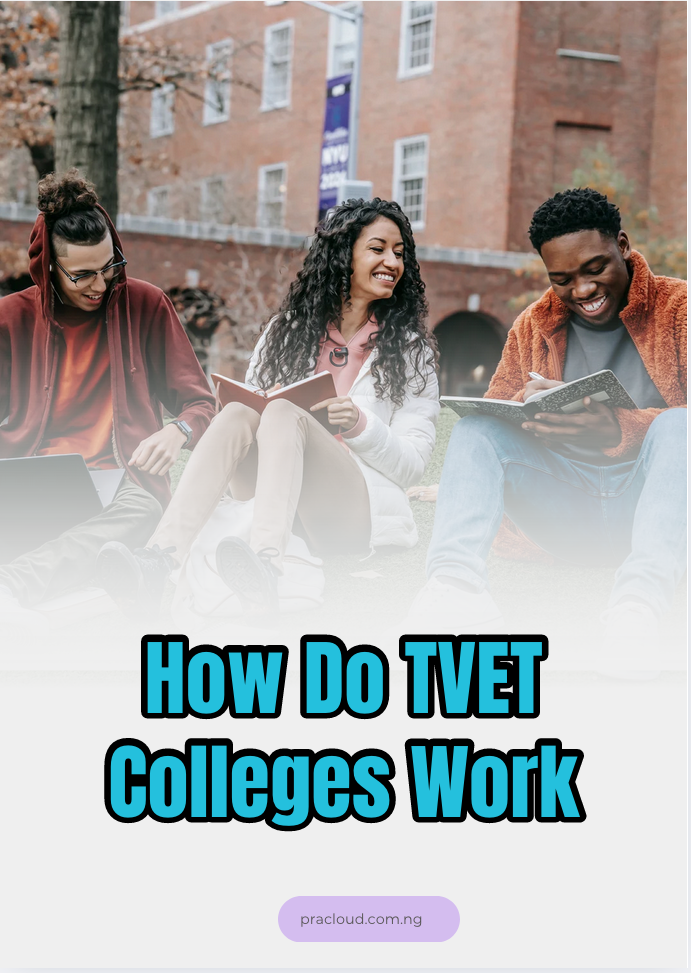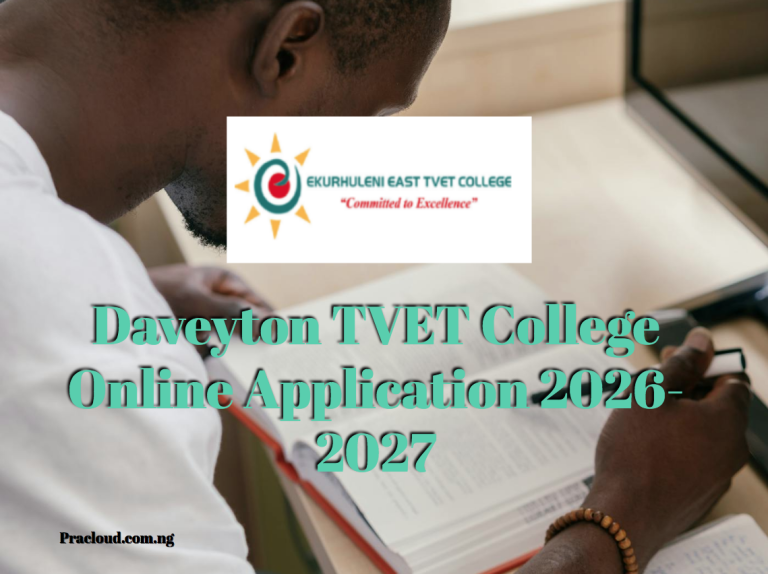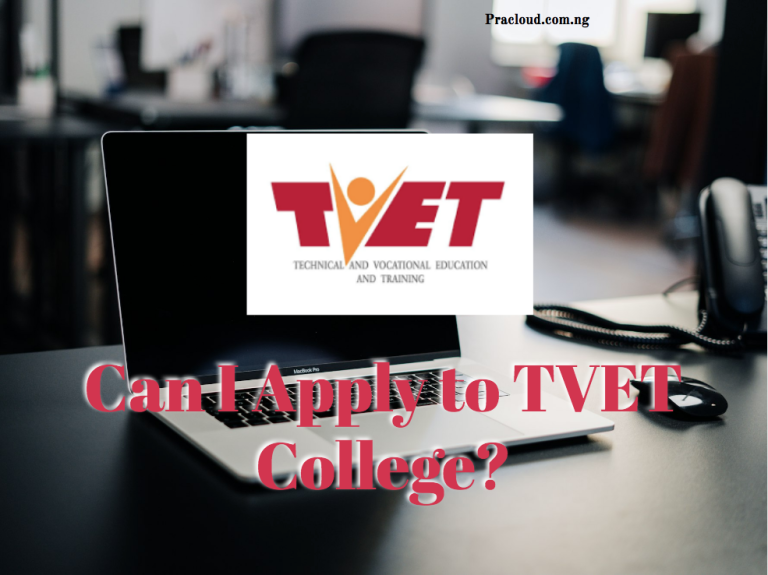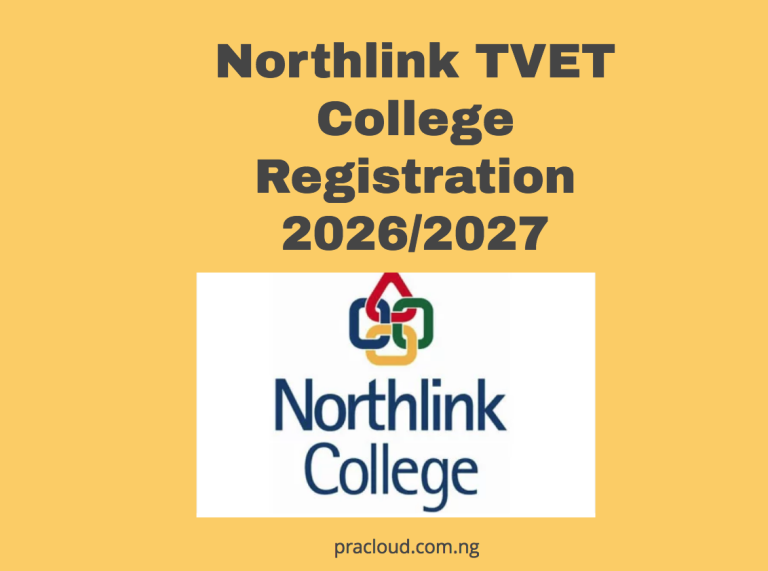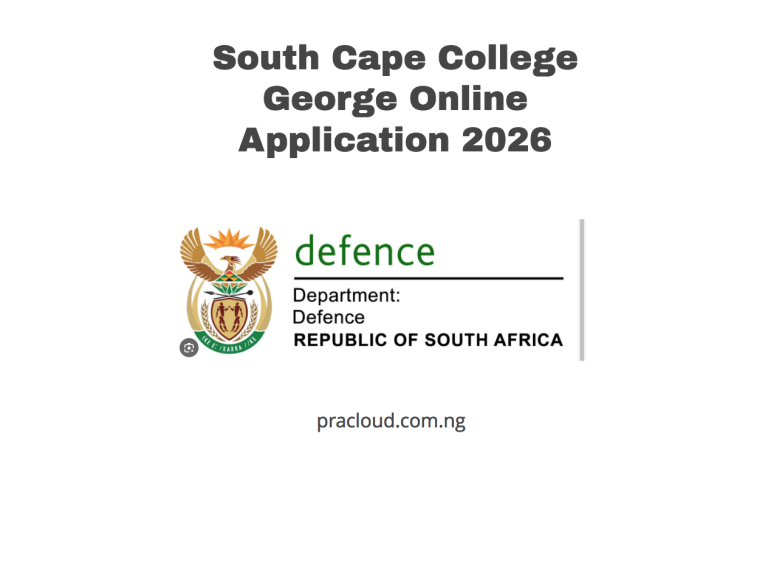How Do Tvet Colleges Work
How Do TVET Colleges Work
How Do TVET Colleges Work
How Do TVET Colleges Function? A Step-by-Step Overview:
Technical and Vocational Education and Training (TVET) colleges in South Africa play a key role in preparing students for practical careers. Unlike traditional universities that focus mainly on academic theory, TVET colleges combine classroom learning with hands-on training to equip students with market-ready skills. But how do TVET colleges actually work, and why are they so important for career growth?
TVET colleges operate by offering accredited programs in fields such as engineering, business studies, hospitality, information technology, and health sciences. These programs are designed to meet the demands of industries across South Africa, ensuring graduates have the technical skills employers need. Students can enroll after completing Grade 9 or matric, depending on the course level, making TVET colleges accessible to a wide range of learners.
Each college partners closely with industries and businesses to provide practical training, apprenticeships, and workplace exposure. This approach allows students to gain real-world experience while studying, increasing their chances of employment after graduation. TVET courses are structured with a balance of theory and practical application, so students not only understand the concepts but also know how to apply them on the job.
Furthermore, TVET colleges are regulated by the Department of Higher Education and Training (DHET), ensuring that qualifications are nationally recognized. Financial support such as NSFAS funding is also available to eligible students, making education more affordable. By focusing on skill development and employment readiness, TVET colleges help bridge the gap between education and the job market.
Qualifications TVET colleges offer:
There are four main types of qualifications offered at TVET colleges:
- The National Certificate Vocational (NC(V) qualifications,
- The Report 191 Programs,
- the National Introductory Certificate (N4), and
- The National Certificates (N4).
Read Also: TVET Colleges That Offer Social Work
Courses And Programs Offered At TVET College
Please confirm if any of the courses listed below are offered by the colleges:
- Education and Development
- Finance, Economics, and Accounting
- Information Technology and Computer Practice
- Mechatronics
- Office Administration Tourism
- Civil Engineering and Building Construction
- Electrical Infrastructure Construction
- Engineering and Related Design
- Safety In Society
- National Skill Fund ( NSF Project )
- Automotive Repair and Maintenance
- Fitting
- Mechatronics
- Motor Mechanic
- Wholesale and Retail Operations
- Water and Wastewater Treatment
- Water Reticulation Services
- End-User computing
- General Security Practice
- Sports coaching
- Accounting Technician
- Fiber Processing and Manufacturing ( FP & M SETA)
- Furniture Making
- Health and Wealth (HWSETA)
- Fitting and Turning
- Electrical
- Automotive
- Education, Training and Development Practices ( ETDP-SETA)
- Early Childhood Development
- Wholesale and Retail SETA
- Wholesale and Retail Operations
How Long Do TVET Courses Take?
- It depends on the course you are doing. However, TVET courses usually take 18 to 36 months to complete.
Who can attend a TVET college?
As part of the Higher Education system, TVET Colleges accept students who have completed Grade 9, 10, 11, or 12 at the high school level. University post-graduates can also enrol for courses at TVET Colleges for more practical exposure. Tvet Courses List
A big benefit of attending a TVET college is the high focus on the employability of students, where part of the curriculum requires the students to complete experiential training (internships and apprenticeships), which helps build up experience on their CV.
Not all colleges offer the same courses. It is a good idea to first do some research on courses offered by colleges that interest you. Courses are usually in the fields of hospitality, food service, and tourism industries, haircare, early childhood development, and management (financial, human resource, marketing, and administration), to mention a few.
What TVET Colleges Offer
- TVET colleges provide nationally accredited qualifications such as National Certificate (Vocational) [NC(V)] programs and NATED (N1–N6) courses.
- These cover a wide range of fields, including engineering, business studies, hospitality, agriculture, information technology, and health sciences.
- The courses are designed to meet industry needs, ensuring that graduates have relevant skills that employers seek.
Admission and Entry Requirements
- Students can enroll after completing Grade 9 or matric, depending on the level of the program.
- This flexibility allows learners from different educational backgrounds to access technical education.
- Admission requirements vary, but most programs require basic literacy and numeracy skills.
How Learning Is Structured
- TVET colleges blend classroom instruction with practical training.
- Lessons often include laboratory work, workshops, and workplace-based learning.
- Many colleges partner with local industries to provide internships or apprenticeships, helping students gain real-world experience before graduation.
Accreditation and Funding
- All TVET colleges are regulated by the Department of Higher Education and Training (DHET).
- This ensures that qualifications are nationally recognized.
- Financial assistance is available through the National Student Financial Aid Scheme (NSFAS), which covers tuition, books, and accommodation for eligible students.
Why Choose a TVET College
- By combining theory and practice, TVET colleges help bridge the gap between education and employment.
- Whether you want to become a skilled artisan, start a small business, or upskill in a trade, these colleges offer a direct pathway to a practical and rewarding career.
Document needed to apply to TVET Colleges
When applying, students must submit the documents listed below:
- A unique/valid Email address and cellphone number
- 3 certified copies of the ID of the Parent/Legal Guardian
- 3 certified copies of the ID of the Learner
- South African applicants will need an ID number. Foreign applicants will need their passport numbers.
- Copy of your school qualifications (Senior Certificate)
- A certified copy of your latest results/Grade 9 or Higher;
- Proof of Residence.
Foreign students:
- Certified copies of the passport
- SAQA-approved foreign qualifications
- Proof of medical insurance or cover
- Valid study permit
How To Make An Application To TVET Colleges
Step 1: Get your application form first.
All new applications are now available online:
- During the application process, please ensure that you include a valid and working email address, as well as a telephone number.
Step 2: Complete the application form thoroughly.
- E-mail, ID, and cell phone number verification. Your ID, e-mail, and cell phone are used to verify your identity.
Step 3: Ensure that all supporting documents are attached.
All applicants who are beginning a new qualification must submit the following certified documents:
- Birth Certificate/Identity Document (Proof of New ID/Passport Application)
- Certificates/Qualifications
- Recent Academic Achievements
- Other account statements/billing documents for municipalities (not older than 3 months)
- A current study permit (for Foreign national students)
- The Evaluation Certificate of the South African Qualifications Authority (SAQA) (foreign qualifications).
Step 4: Fill out and submit your application.
- You will receive a confirmation email containing all application details.
Tvet Colleges Contact Information
- Visit: 123 Francis Baard Street, Pretoria, South Africa
- Private Bag X174, Pretoria, 0001
- Contact Details: 0800 87 2222/+ 27 12 312 5911
- Email: callcentre@dhet.gov.za
Technical and Vocational Education and Training (TVET) colleges in South Africa provide practical education aimed at preparing students for employment or self-employment. These institutions focus on technical skills and vocational training rather than purely academic theory, making them a strong alternative to universities for those who want hands-on experience. Visit The Official Website For More
RELATED ARTICLE:
